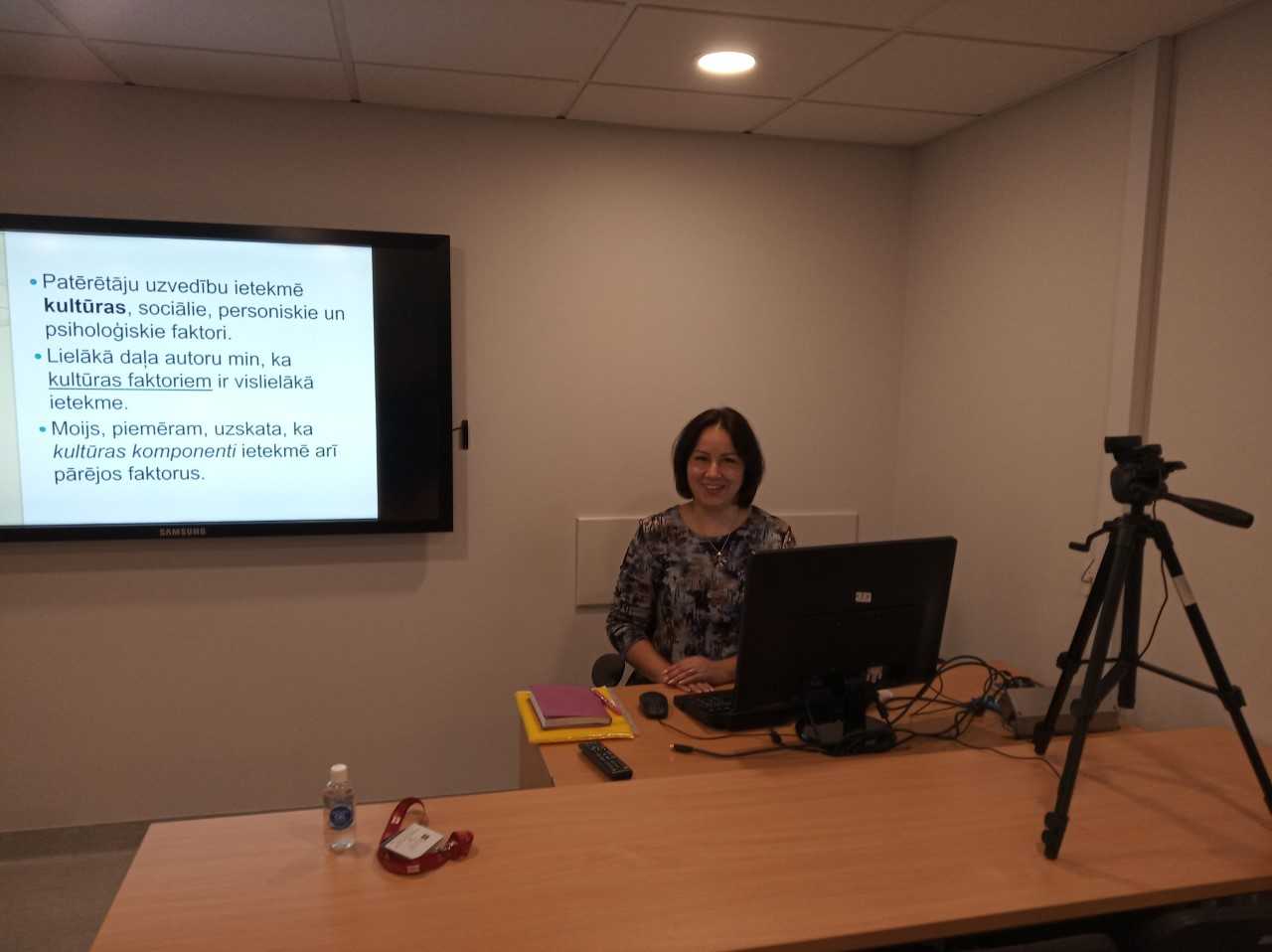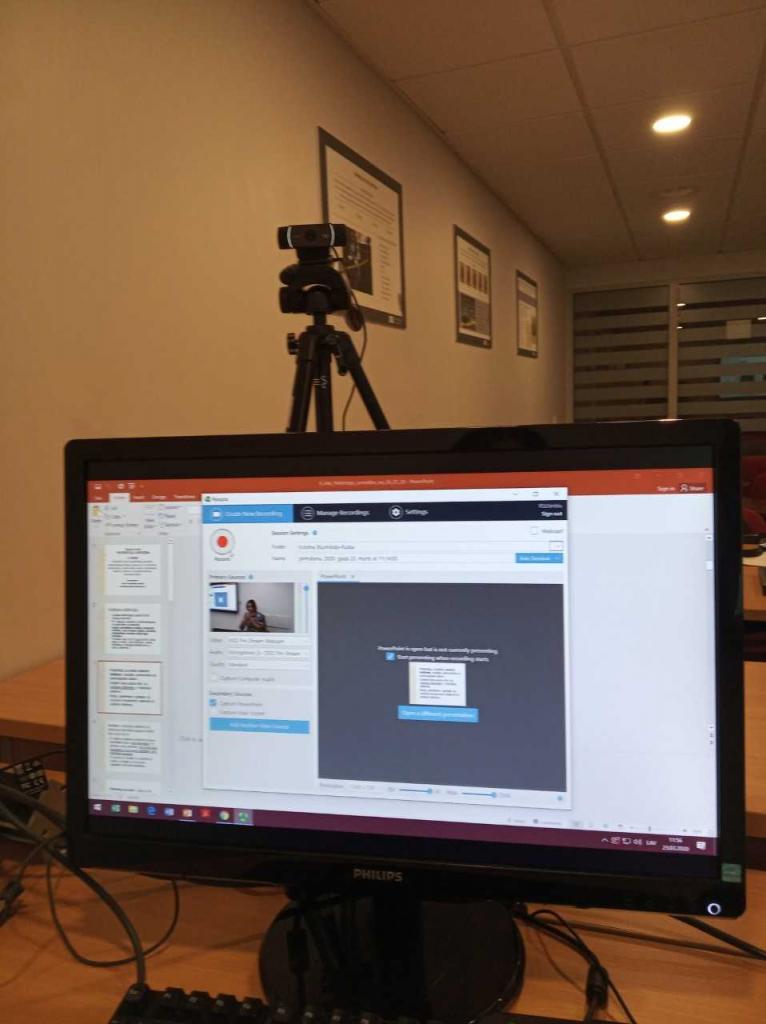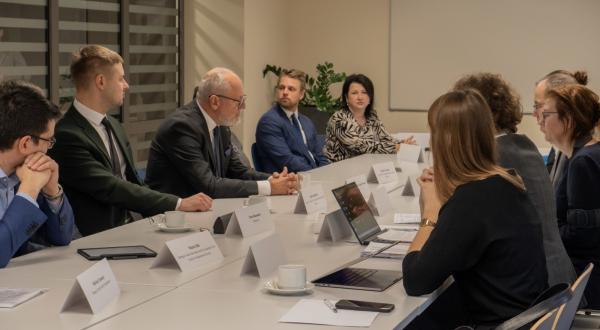Studying Remotely Requires Understanding, Patience, a Huge Amount of Work and New Skills
Due to the national state of emergency that was announced on 12 March in Latvia, all studies at Rīga Stradiņš University (RSU) are currently taking place remotely. The huge amount of work to ensure remote studies began already on 11 March.
'We can describe our approach to implementing remote studies with three key words – communication, content and cooperation.
We take care to ensure that all students are informed on how their studies will be organised in each study course going forward. We are also cooperating with our colleagues from the IT Service Centre to take various measures to be able to ensure support for lecturers, whose experience in using digital tools varies. It is not easy to update the form and content of all study courses in such a short period of time - there are so many different fields.
There are study courses where lecturers only need to make a few adjustments to their e-studies curriculum. There are, however, also study courses where the amount of work that needs to be done is much more comprehensive,' explains Nora Jansone-Ratinika, the Director of and a lecturer at the Centre for Educational Growth.
Dzintra Kažoka, Assoc. Prof. at the Department of Morphology of the RSU Faculty of Medicine, emphasises that organising remote studies encourages everyone to look for new solutions and requires a creative approach:
'We have developed remote teamwork among colleagues. We support one another and assist each other in learning the digital tools available to us.'
This situation does, of course, also pose many new challenges. At the moment many lecturers are dedicating all their time to organising the study process, sometimes devoting more than ten hours a day and even their holidays to this.
'Alongside other tasks, lecturers also have to think about motivating and disciplining their students,' adds Kristīne Blumfelde-Rutka, a lecturer at the Faculty of European Studies and the Head of the International Marketing and Advertising study programme. Blumfelde-Rutka is currently conducting lectures online via the Panopto platform and makes regular video recordings of her lectures. She adapts the content of her seminars to the Zoom platform, and also consults students via phone, e-mail and Skype.
'My colleagues from the department of International Business and Economics ensure both video lectures and seminars on Zoom,' explains Blumfelde-Rutka.
Kristīne Blumfelde-Rutka, a lecturer at the RSU Department of International Business and Economics, carries out a video recording of a lecture in the course "Consumer Behaviour". Photo from Blumfelde-Rutka's private archive.
To get an overview of how students at Latvian universities are dealing with studying remotely, the Student Union of Latvia created and distributed a questionnaire on 21 March. By 23 March almost 1,000 students had completed the questionnaire: approximately a quarter were RSU students.
'The current data shows that students' feelings vary – some say that their studies are proceeding successfully and that they receive sufficient information. Some students, however, say that they are concerned whether they will be able to acquire the necessary knowledge and skills remotely considering that it is still not clear how long this situation will last.
 Although the RSU Library is open, accessing information is difficult because of other libraries' restrictions,' explains Anna Jete Gauja, Chair of the RSU Student Union.
Although the RSU Library is open, accessing information is difficult because of other libraries' restrictions,' explains Anna Jete Gauja, Chair of the RSU Student Union.
For Arta Ūdre, a student in the Physiotherapy Master's study programme, the current situation poses many challenges. This is a time full of uncertainty, and one has to learn to adapt. 'It's a pleasure to cooperate with lecturers who are able to arrange classes in a way that does not cause additional worry for students about their abilities to manage tasks and deadlines. Successful remote classes allow students to learn new knowledge and skills by gradually going through the material.'
Overall, Jansone-Ratinika is satisfied with lecturers' diligence, creative ideas and their passion to learn, and the students' willingness to cooperate by rearranging their normal approach to studying and support one another.
'This challenge to higher education can be considered as an opportunity for dynamic growth, testing and enhancing IT infrastructure as well as lecturers' and students' digital skills and as a chance to look for new ways of teaching and learning,' Nora Jansone-Ratinika concludes optimistically.




